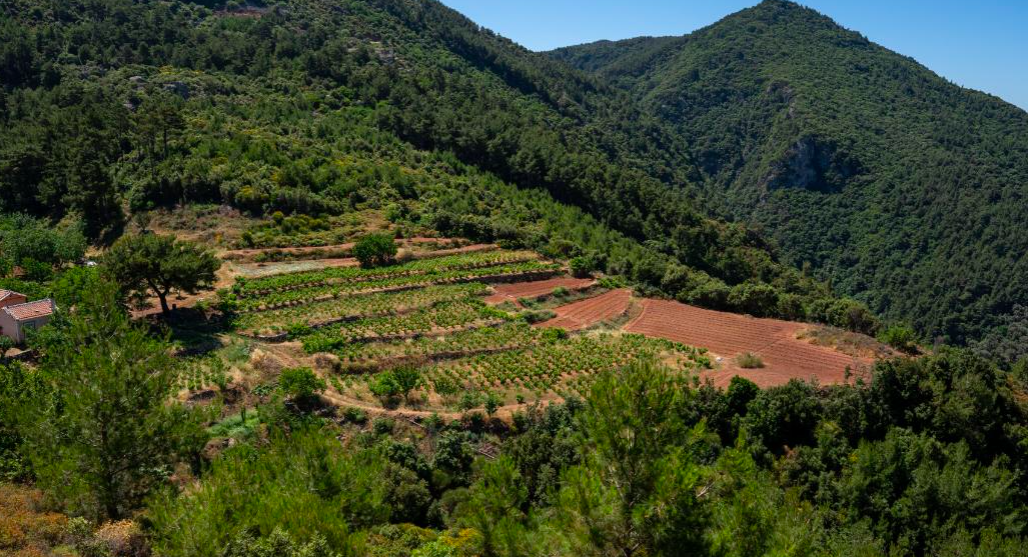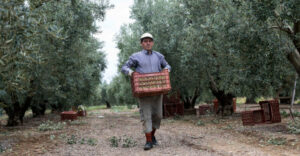The Famous Samos Wine: The Best “Ambassador” of Greek Wines Abroad
The renowned Samos wine is the best “ambassador” of Greek wines worldwide. We call it “Muscat of Samos” instead of “White Muscat” because this variety is deeply connected with the picturesque island in the eastern Aegean. This connection is well-deserved, as Muscat, also known as “Moschoudi” or “Moschostafilo,” has been cultivated on the island for millennia, becoming an integral part of Samos’s history, tradition, and wine culture. It remains the island’s best representative across the globe.
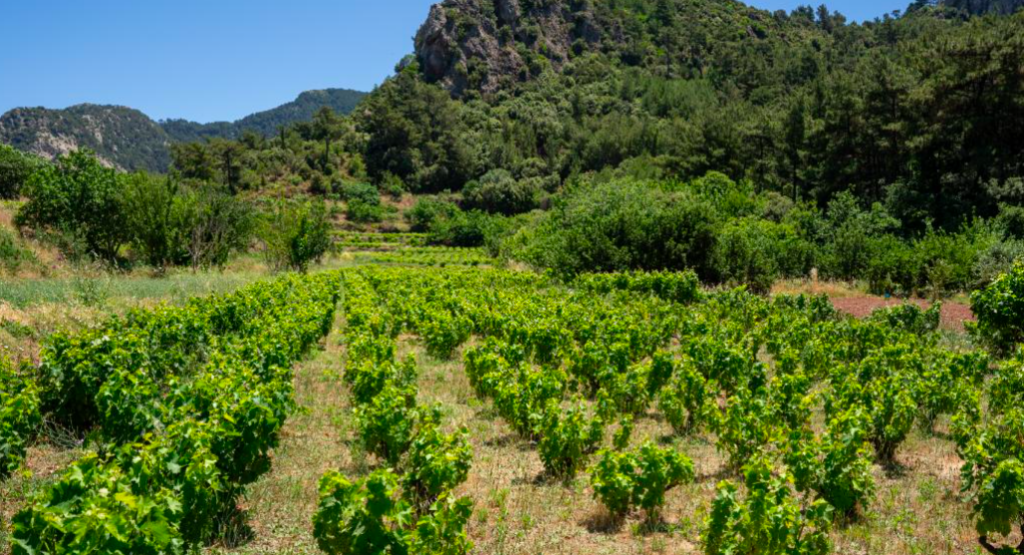
According to myth, Dionysus, the god of vines and wine, gifted the Muscat grape to the people of Samos as a reward for helping him defeat the Amazons. He taught them viticulture and winemaking. From this grape, with its small berries and rich flavor, the famous “White Muscat” has been produced for centuries. It is said that the wine was named “White Muscat” because its aroma resembles the scent of the island’s flowers in spring.
Over the centuries—from antiquity, through Byzantine times, Ottoman rule, and the Wars of Independence, up until the union with Greece in 1912—the cultivation and production of White Muscat have significantly shaped the local history and society of Samos, a tradition that continues to this day.
Today, “Muscat of Samos” is famous worldwide and is closely associated with its geographical origin, much like the most distinguished international varieties. For these reasons, Samos wine holds one of the oldest Protected Designation of Origin (PDO) certifications and is legally sold internationally under the name “Samos.” With its bright, pale yellow color and greenish highlights, perfectly balancing between dry and sweet, Samos offers a complex flavor profile with many aromatic characteristics. These include dominant notes of fresh grapes, orange blossoms, and rose petals, with the primary grape aromas prevailing. Although it leaves a faint sweetness in the aftertaste, the natural freshness of the grape creates an exceptionally harmonious ensemble.
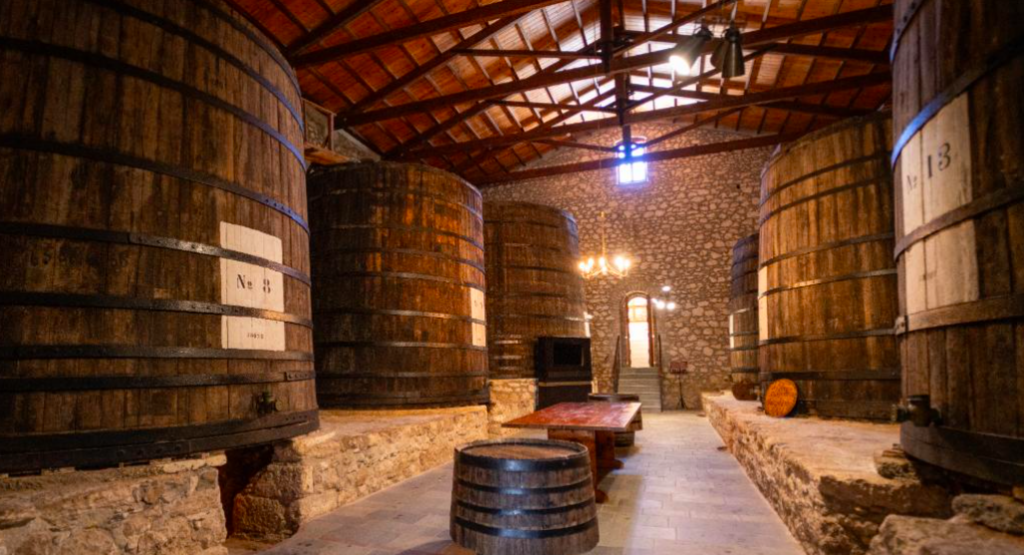
The Secret of Success
The success of Samos wine is not only due to the quality of the grape, which is grown on traditional stone terraces—called “pezoules” by locals—scattered in the island’s mountainous areas, reaching up to 900 meters in altitude, but also the love and passion of the island’s winemakers. They have been cultivating and producing this popular wine with the same dedication for centuries, a wine known for its rich yet balanced aroma.
Today, there are about 25 “wine villages” across the island, systematically engaged in viticulture on traditional dry stone terraces, “pezoules,” at high altitudes and steep slopes around Mount Ampelos—a name not coincidentally found in antiquity. The secret lies in the high elevation, the soil, and the cool sea breezes in summer. The Muscat vineyard also extends to the slopes of Mount Kerkis (1,443 meters) in the western part of the island. The climate of Samos is typically Mediterranean, and the vineyard’s altitudinal differences greatly impact the aromatic characteristics of the wines produced, with the semi-mountainous areas perhaps offering the most typical examples.
A Global “Ambassador”
Until 2016, the Union of Winemaking Cooperatives of Samos (EOS), one of the oldest and largest in Greece, was the sole producer of the wine, garnering numerous awards and distinctions. The wines produced by the Unified Winemaking Agricultural Cooperative of Samos include sweet, semi-dry, and dry varieties. In recent years, private wineries have also been operating on the island, achieving the export of 80% of the island’s total annual production. Samos is now the most well-known Greek wine abroad and is included among the world’s top wines. Muscat wine from Samos is exported to countries like France, Canada, the USA, the UK, Belgium, Germany, Switzerland, Italy, the Netherlands, Sweden, Cyprus, Australia, Denmark, the Czech Republic, Finland, China, Hungary, Romania, and others, with new markets added annually to the list of 25 export countries.
Other Varieties
Muscat of Samos dominates the island, covering 95% of the approximately 18,000 acres of vineyards. The remaining 5% is dedicated to the cultivation of the Fokiano grape, a red wine variety, as well as the well-known Retino and Avgoustiatis. Fokiano originates from Asia Minor and is also known as Samos or Damaskino. It produces red wines of quite good quality, characterized by moderate alcohol content, medium acidity, and color. Retino is a red variety with wine of high alcohol content, good acidity, and medium color. Finally, Avgoustiatis is part of a group of very rare Greek varieties cultivated in small areas by a few winemakers but with impressive high-quality results. It is a red grape variety that mainly produces dry wines with a deep, vibrant, dark red color and intense aromas of ripe red fruits and Mediterranean herbs.
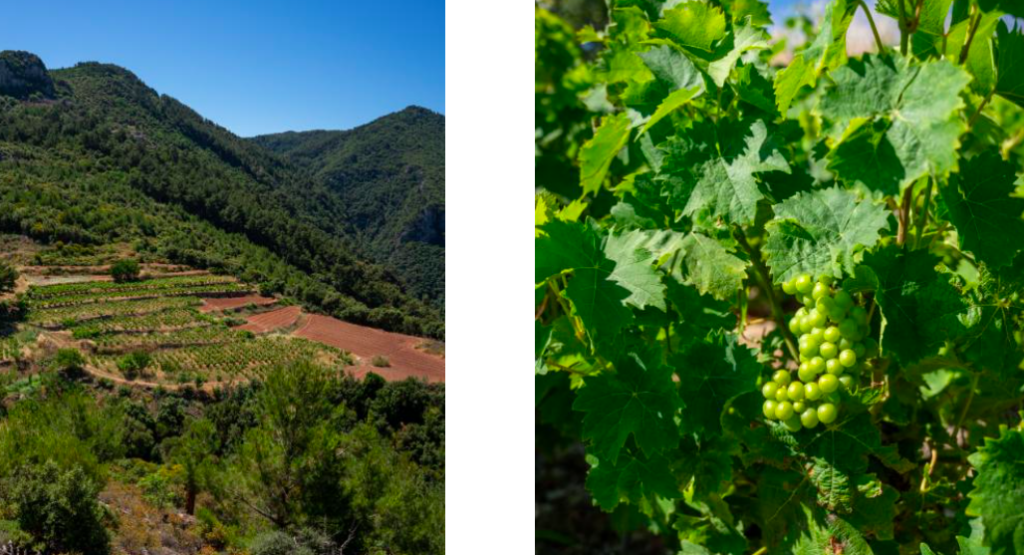
Visitable Wineries
Today, there are nine wineries on Samos, which are open to the public, offering unique wine-tasting experiences. The Unified Winemaking Cooperative (EOS) of Samos operates two large wineries, one in Malagari, in the town of Samos, and one in Karlovasi (samoswine.gr/Phone: +30 2273087510). In Karlovasi and the surrounding area, there are also the Nopera Winery (noperawine.com/Phone: +30 6987083307), Vakakis Winery (vakakiswines.gr/Phone: +30 6944941118), and Kostaki Winery (kostakiwinery.gr/Phone: +30 6958185480). In central Samos, in the village of Mytilinioi, you can visit the Hatzigiannou Winery (hatziioannou-wines.gr, Phone: +30 6948302477), while in the mountain village of Stavrinides, the small Eleftheriou family winery operates (Phone: +30 6932320353). The Koutsodontis Winery (coutsodontiswinery.gr/Phone: +30 6986502669) is located in Marathokampos. Near the village of Vourliotes, the Metaxa Liknon Winery (metaxa.com/Phone: +30 6956202709) has recently opened its doors.
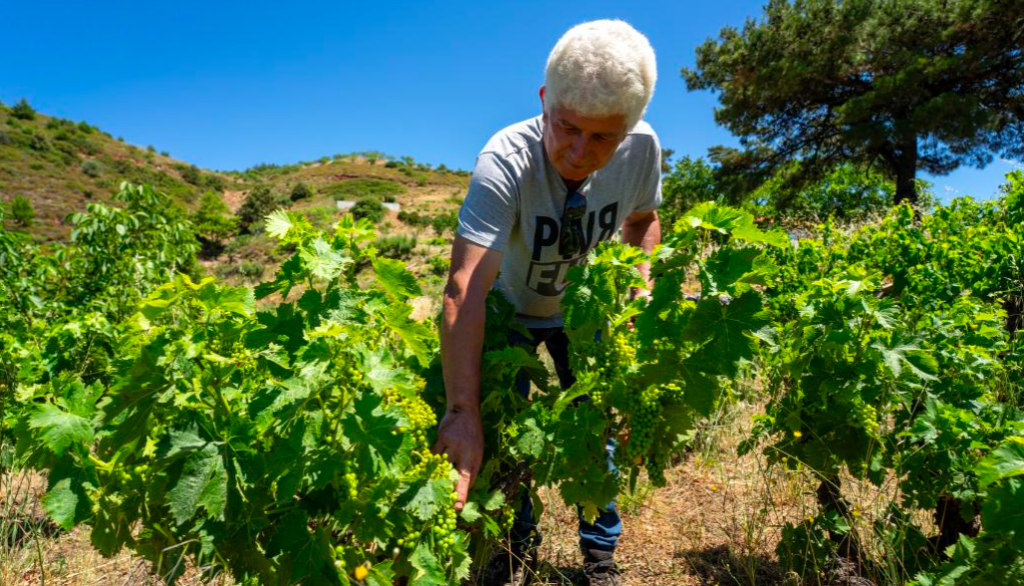
You can visit the wineries of Samos by appointment, providing a unique opportunity to enjoy the island’s wines. The guide “Digital Routes of Samiot Wine” offers information on the organized “Winery” route (samoswineroutes.gr).
Information:
samoswineroutes.gr
samoswines.gr
Ask me anything
Explore related questions
